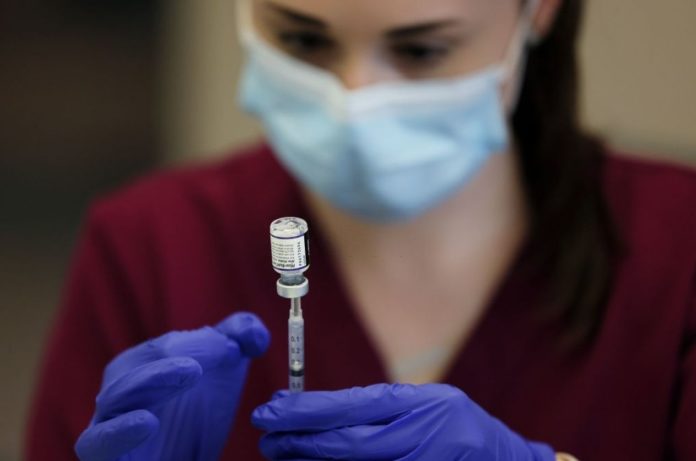First lab tests show that antibodies from a vaccine made by Pfizer may be up to 40 times less effective against Omicron
The first lab studies on the new variant in South Africa have revealed that antibodies from the Pfizer vaccination may be up to 40 times less efficient against Omicron than the original COVID strain.
However, while its capacity to evade vaccine antibodies is substantial, it is not complete, which is excellent news, according to Professor Alex Sigal, virologist at the Africa Health Research Institute and the study’s lead author.
The study discovered that antibodies from patients who had been vaccinated as well as naturally infected with COVID were substantially more efficient against Omicron, implying that boosters may be beneficial.
Its capacity to evade the vaccine was five to ten times more than the Beta strain, which was also discovered in South Africa and previously had the strongest ability to evade the vaccine.
Professor Sigal, who leads the testing team, believes Omicron has an immune escape advantage as well as a transmission edge over other types.
The study is quite limited, focusing on live Omicron virus generated in the laboratory and tested against blood samples from only 12 vaccinated persons.
“In people vaccinated against COVID-19 with two jabs of the Pfizer vaccine, the ability of their antibodies to neutralise Omicron was reduced by between 20 and 40 times compared to the original COVID variant against which all our vaccines are made,” said the authors of the study.
“It’s a huge reduction compared to variants that we have seen before. The Beta variant (previously known as the South Africa variant) was one of the strongest variants showing this “immune escape” but based on this analysis the Omicron variant is five to ten times better at evading antibodies.”
As a result, it can’t tell us much about how successful vaccinations will be in preventing Omicron infection or onward transmission in the real world.
It’s useful in demonstrating that the variation has a major influence, but that vaccinations will still provide some protection. And boosters may provide us with great protection.
“We saw a lot of escape,” said Alex Sigal at the Africa Health Research Institute in Durban, who led the study. “But I think the news is pretty good.”
The ability of Omicron to cause severe disease is still unknown.
According to Dr. Anthony Fauci, the top infectious diseases expert in the United States, preliminary research suggests that the variant may be less severe, with fewer hospital admissions and less need for ventilators.
However, he cautioned that scientists will only have enough data in a few weeks to reach more definitive findings.
Image Credit: Getty
You were reading: Early lab tests show Omicron COVID variant just needs a booster dose
